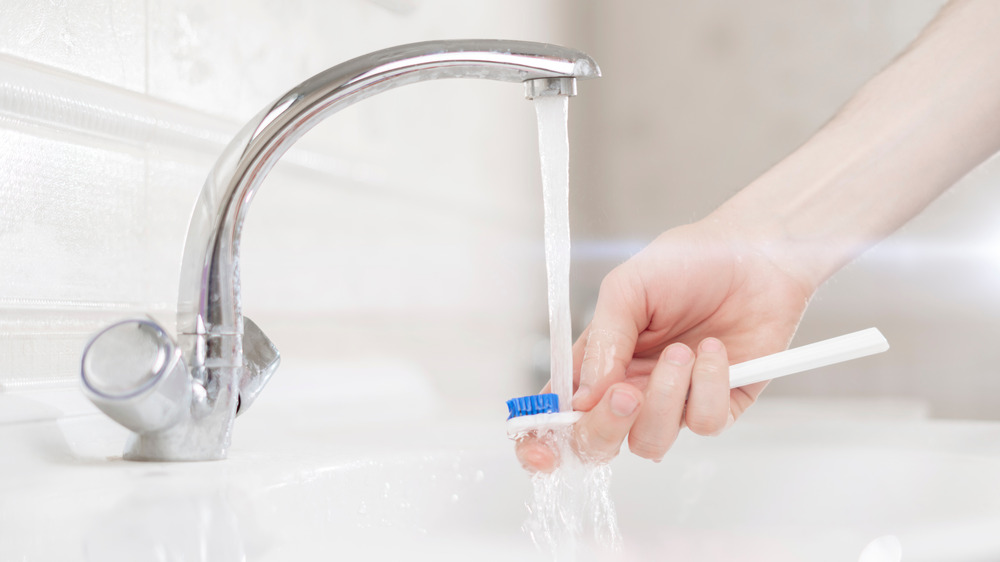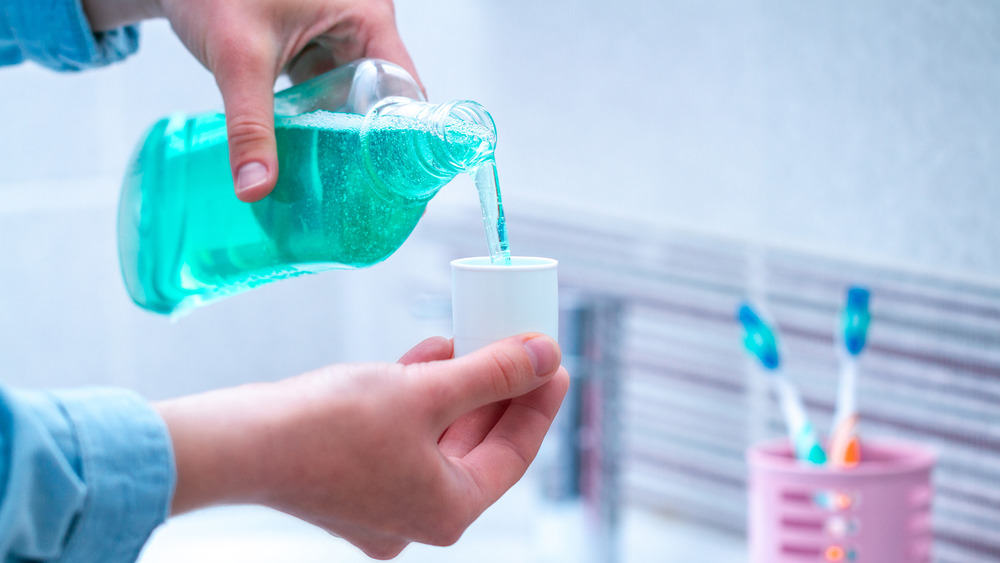How You Should Really Be Cleaning Your Toothbrush
Do you run your toothbrush under hot water every once in a while as a way to sanitize it? If you have, you likely know that it's important to keep your toothbrush clean, but you might not know the best way to do it. Every time you use your brush, you slough off plaque, bacteria, and other microorganisms — it's wise to have a hygienic routine for this utensil.
For people who have used the hot water trick, this may be a worthwhile method. Healthline explains that you can sanitize the brush by running it underneath the water both before and after use. Make sure that the water is as hot as possible — the outlet suggests ensuring that the water temperature generates steam to effectively rid your brush of germs. This can help burn off any clung-on bacteria, which is especially important since germs from your toilet can even make their way onto your bristles, Insider notes. Apparently, the moving water sends bacteria into the air which can settle directly on your toothbrush. Make sure to keep your brush far from the toilet and sanitize it often to counteract this effect.
The way that you store your brush also can make or break its cleanliness. It should always stand in an upright position after use because air kills off most of the bacteria present on the bristles. Rather than tossing your brush in a drawer, find a holder that keeps your brush separated from anyone else's in your household and allows it to stay vertical.
You can use hydrogen peroxide to clean your toothbrush
If you're looking for a cleaning agent, you can likely find a viable option in your medicine cabinet. Insider suggests using hydrogen peroxide to do the dirty work by killing off germs and microorganisms — especially if your toothbrush needs a deep clean. You can also use a mouthwash that contains alcohol for a powerful rinse that will sweep any lingering particles out from the bristles.
The outlet even cites a study finding that toothbrushes soaked in 3 percent hydrogen peroxide or an alcohol-based mouthwash came out 100 percent germ-free. Simply pour enough of the liquid into a cup and soak the head of your brush for 15 minutes. Rinse with hot water and enjoy your squeaky clean bristles.
Tools that clean your brush for you are also on the market, and they usually use UV rays to do the work. Healthline explains that this technology is extremely effective in sanitizing your toothbrush — you can find an apparatus online. They do carry a hefty price tag so make sure that you're ready to use it often to get the most out of it.
Of course, replacing your toothbrush every three-four months is the best way to keep it free from bacteria. If you notice the bristles fanning out or just a lower quality of clean, it's best to pick up a new one.

